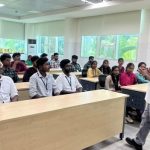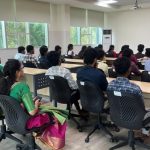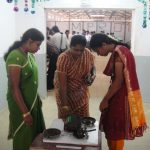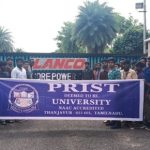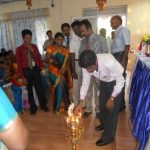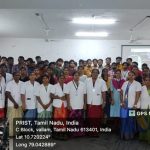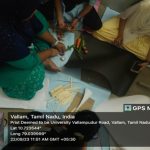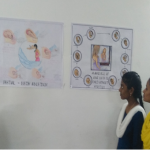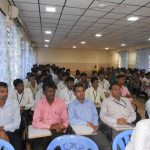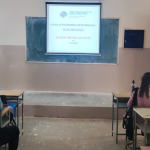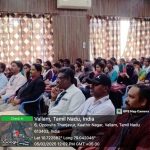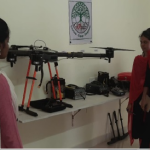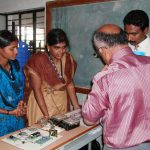ABOUT THE DEPARTMENT
a .YEAR OF ESTABLISHMENT -2008
b .CORE OBJECTIVES:
The Department of Electrical and Electronics Engineering (EEE) at Ponnaiyah Ramajayam Institute of Science & Technology (PRIST) was established in 2008. Since its inception, the department has been committed to delivering competent electrical engineers equipped with core technical knowledge and professional skills to meet future challenges.
The department boasts spacious, well-equipped laboratories, including:
- Machines Lab
- Electric Circuits Lab
- Measurement and Instrumentation Lab
- Control System Lab
- Power Electronics Lab
- Power Systems Simulation Lab
- Linear Integrated and Circuits Lab
These facilities are outfitted with state-of-the-art equipment to support practical learning and research. The EEE department’s faculty comprises both young and experienced members dedicated to providing quality education at undergraduate and postgraduate levels. They also guide scholars in academic research, specializing in areas such as Power Electronics and Drives, Power Systems, and Advanced Communication Systems.
VISION:
To make students technologically superior, ethically strong, and shaping them into professionals who will become trendsetters in the industry.
MISSION:
- To commit excellence in its academic programs by enabling students to blend knowledge acquisition with real-life applications.
- To equip students to adapt to global, regional, and local needs while upholding professional ethics.
- To provide world-class education, nurture career improvement, and develop human and social intellectual qualities.
Programme Offered
B.Tech Electrical and Electronics Engineering (Full Time – 4 Year; Part Time – 3.5 Year)
Programme Outcomes:
PO1: Engineering knowledge: Apply the knowledge of mathematics, science, engineering fundamentals, and an engineering specialization to the solution of complex engineering problems.
PO 2: Problem analysis: Identify, formulate, review research literature, and analyse complex engineering problems reaching substantiated conclusions using first principles of mathematics, natural sciences, and engineering sciences.
PO 3: Design/development of solutions: Design solutions for complex engineering problems and design system components or processes that meet the specified needs with appropriate consideration for the public health and safety, and the cultural, societal, and environmental considerations.
PO 4: Conduct investigations of complex problems: Use research-based knowledge and research methods including design of experiments, analysis and interpretation of data, and synthesis of the information to provide valid conclusions.
PO 5: Modern tool usage: Create, select, and apply appropriate techniques, resources, and modern engineering and IT tools including prediction and modelling to complex Engineering activities with an understanding of the limitations.
PO 6: The engineer and society: Apply reasoning informed by the contextual knowledge to assess societal, health, safety, legal and cultural issues and the consequent responsibilities relevant to the professional engineering practice.
PO 7: Environment and sustainability: Understand the impact of the professional engineering solutions in societal and environmental contexts, and demonstrate the knowledge of, and need for sustainable development.
PO 8:Ethics: Apply ethical principles and commit to professional ethics and responsibilities and norms of the engineering practice.
PO 9:Individual and team work: Function effectively as an individual, and as a member or leader in diverse teams, and in multidisciplinary settings.
PO 10: Communication: Communicate effectively on complex engineering activities with the engineering community and with society at large, such as, being able to comprehend and write effective reports and design documentation, make effective presentations, and give and receive clear instructions.
PO 11: Project management and finance: Demonstrate knowledge and understanding of the engineering and management principles and apply these to one‘s own work, as a member and leader in a team, to manage projects and in multidisciplinary environments.
PO 12: Life-long learning: Recognize the need for, and have the preparation and ability to engage in independent and life-long learning in the broadest context of technological change.
Programme Educational Objectives:
PEO1: To enable graduates to pursue research, or have a successful career in academia or industries associated with Electronics and Communication Engineering, or as entrepreneurs.
PEO2: To provide students with strong foundational concepts and also advanced techniques and tools in order to enable them to build solutions or systems of varying complexity.
PEO3: To prepare students to critically analyse existing literature in an area of specialization and ethically develop innovative and research oriented methodologies to solve the problems identified.
M.Tech Power System (Full Time-2 Year; Part Time-3 Year)
Programme Outcomes:
PO 1: An ability to independently carry out research/investigation and development work to solve practical problems
PO 2: An ability to write and present a substantial technical report/document
PO 3: Students should be able to demonstrate a degree of mastery over the area as per the specialization of the program. The mastery should be at a level higher than the requirements in the appropriate bachelor program
PO 4: Ability to attain professional ethics and intellectual integrity to contribute to the community for sustainable development of society
PO 5: Apply knowledge of basic science and engineering in analysis and modeling of the power system components
PO 6: Implement cost effective and cutting edge technologies in Power System
PROGRAMME EDUCATIONAL OBJECTIVES:
PEO 1: To prepare the students for successful career in electrical power industry, research and teaching institutions.
PEO 2 : To provide strong foundation in Power Engineering, necessary for day-today operation and planning of Power System.
PEO 3: To develop the ability to design various controllers to enhance the stability and power transfer capability of the Power System
PEO 4 : To provide knowledge in Renewable Energy Systems, Electric Vehicles and Grid Integrations using Power Converters.
PEO 5 : To develop a detailed understanding of various tools applied to the operation, design and investigation of modern electric power systems.
Ph.D.:
The Ph.D. programme includes an integrated sequence of course work and research in EEE. Scholars are selected on clearing the entrance examination conducted by PRIST.
Add-on COURSES (Certificate Level)
Advanced Digital design with FGPA (2024-2025)
Artificial Intelligence (2023-2024)
Power converter Analysis and Design (2023-2024)
Rewinding of Induction Motor (2022-2023)
Fault Analysis in Home Appliances (2022-2023)
Embedded Programming Using Arduino. (2021-2022)
Industrial Control Electronics (2020-2021)
Matlab for Electrical Engineers (2019-2020)
PCB Design And Component Testing (2019-2020)
Design Projects using IOT (2019-2020)
PLC and SCADA (2018-2019)
Lab View (2018-2019)
Hardware And Networking Essentials (2018-2019)
More information on the procedure for admission to all the above programmes can be had at www.prist.ac.in
3 .FACULTY
S.NO | NAME OF THE FACULTY | DESIGNATION | QUALIFICATION |
1) | DR.P. AVIRAJAMANJULA | Professor | Ph.D. |
2) | DR. V.S SRINIVASAN | Professor | Ph.D. |
3) | DR .K.JEYAKUMAR | Professor | Ph.D. |
4) | DR.K.C. BALAJI | Associate Professor | Ph.D. |
5) | DR .R.SHANKAR | Associate Professor | Ph.D. |
6) | DR.B.VEERAMUTHU PANDIAN | Associate Professor | Ph.D. |
7) | DR. R.SUBRAMANIYAN | Assistant Professor | Ph.D. |
8) | MRS.R.PRASANNADEVI | Assistant Professor | M.Tech. |
9) | MRS.C.NALINIPRIYA | Assistant Professor | M.E. |
10) | MS.T.ESTHER THANISHA | Assistant Professor | M.E. |
11) | MR. B.KAMALAKANNAN | Assistant Professor | M.Tech. |
12) | MR.N.NANDHAKUMAR | Assistant Professor | M.E. |
13) | MR. MOHAMED SIDDIK | Assistant Professor | M.E. |
14) | MR. C.CHELLADURAI | Assistant Professor | M.E. |
15) | MR. S.SWAMINATHAN | Assistant Professor | M.Tech |
16) | MR.DASARI MANOJ BABU | Assistant Professor | M.E. |
17) | MR. S.BALAJI | Assistant Professor | M.E. |
Graduates Attributes (GAs)
- Engineering Knowledge: Apply knowledge of mathematics, science, engineering fundamentals and an engineering specialization to the solution of complex engineering problems.
- Problem Analysis: Identify, formulate, research literature and analyze complex engineering problems reaching substantiated conclusions using first principles of mathematics, natural sciences and engineering sciences.
- Design/ Development of Solutions: Design solutions for complex engineering problems and design system components or processes that meet specified needs with appropriate consideration for public health and safety, cultural, societal and environmental considerations.
- Conduct investigations of complex problems using research-based knowledge and research methods including design of experiments, analysis and interpretation of data and synthesis of information to provide valid conclusions.
- Modern Tool Usage: Create, select and apply appropriate techniques, resources and modern engineering and IT tools including prediction and modeling to complex engineering activities with an understanding of the limitations.
- The Engineer and Society: Apply reasoning informed by contextual knowledge to assess societal, health, safety, legal and cultural issues and the consequent responsibilities relevant to professional engineering practice.
- Environment and Sustainability: Understand the impact of professional engineering solutions in societal and environmental contexts and demonstrate knowledge of and need for sustainable development.
- Ethics: Apply ethical principles and commit to professional ethics and responsibilities and norms of engineering practice.
- Individual and Team Work: Function effectively as an individual, and as a member or leader in diverse teams and in multi-disciplinary settings.
- Communication: Communicate effectively on complex engineering activities with the engineering community and with society at large, such as being able to comprehend and write effective reports and design documentation, make effective presentations and give and receive clear instructions.
- Project Management and Finance: Demonstrate knowledge and understanding of engineering and management principles and apply these to one‟s own work, as a member and leader in a team, to manage projects and in multidisciplinary environments.
- Life-long Learning : Recognize the need for and have the preparation and ability to Engage in independent and life- long learning in the broadest context of technological Change.
FACULTY PUBLICATIONS
- Balan, Vinoth Kumar, and P. Avirajamanjula. “Extended driving range control strategy for hybrid electric vehicle.” AIP Conference Proceedings. Vol. 2427. No. 1. AIP Publishing, 2023.
- Senthilkumar, S., V. Mohan, and G. Krithiga. “Brief review on solar photovoltaic parameter estimation of single and double diode model using evolutionary algorithms.” International Journal of Engineering Technologies and Management Research 10.1 (2023): 64-78. 2023
- Balan, Vinoth Kumar, and P. Avirajamanjula. “Dual Motor Power Management Strategy for Plug-in Hybrid Electric Vehicle.” Proceedings of International Conference on Power Electronics and Renewable Energy Systems: ICPERES 2021. Springer Singapore, 2022.
- Krithiga, G., et al. “Optimization of switching angles for selective harmonic elimination in cascaded h-bridge multilevel inverters employing artificial intelligence techniques–a mini review.” International Journal of Engineering Technologies and Management Research 10.1 (2023): 1-16. 2023
- Krithiga, G., and V. Mohan. “Elimination of Harmonics in Multilevel Inverter Using Multi‐Group Marine Predator Algorithm‐Based Enhanced RNN.” International Transactions on Electrical Energy Systems 2022.1 (2022): 8004425 (2022)
- 6. Dr.S.A.Ahamed Ibrahim, “Fault Location and Wide Area Measurement using Linear Least-Squares Method on Transmission”, IJRISE, (2021).
- Ali, Jagabar Sathik Mohamed, Dhafer J. Almakhles, SA Ahamed Ibrahim, Saeed Alyami, Sivakumar Selvam, and Mahajan Sagar Bhaskar. “A generalized multilevel inverter topology with reduction of total standing voltage.” IEEE Access 8 (2020): 168941-168950. (2021)
- Dr..P. Avirajamanjula , “Economic Dispatch of Micro grid using Flower Pollination Algorithm”, International Journal of Scientific Research and Review, (2019)
- Dr.B.Kunjithapatham, “Analysis of Design Modelling and Control of an Interleaved-Boost Full Bridge Three Port Converter for Hybrid Renewable Energy Systems”, IJRISE. (2018)
- Dr. S.Ezhilarasan, Dr. P.Avirajamanjula, “Control Scheme for a Stand-Alone Wind Energy Conversion System for Better Efficiency of Battery Storage”, International Journal of Applied Engineering Research.(2018)
- Dr.P. Avirajamanjula, Dr.S.Ezhilarasan, “Implementation of Decentralized Dynamic Power Sharing Strategy for Hybrid Energy Storage System in Autonomous DC Micro Grid”, International Journal of Applied Engineering Research.(2018).
- Dr.B.Kunjithapatham et.al., “Advanced Control Scheme of Unified Power Quality Conditioner with Sliding Mode Approach”, IJARBEST, (2017)
SEED MONEY GRENTED BY PRIST:
S.No. | PROJECT TITLE | FACULTY | GRANT IN Rs. |
1. | Development of Universal controller for converter based Switched Relectance Motor | Dr.P.Avirajamanjula
| 7.5L
|
2. | Control scheme for a Stand alone wind energy conversion system for better efficiency of battery storage | Dr.S.Ezhilarasan
| 4.2L
|
3. | Power quality improved single stage high gain dc to dc converter | Dr.B.Kunjithapatham
| 1.9L
|
4. | Control Scheme For A Stand-Alone Wind Energy Conversion System | Dr.J.Sanjeevikumar
| 5.8L
|
6. | Automated support system design for people with limited communication | Dr. S. Ezhilarasan | 15000 |
7. | A nine-level inverter employing one voltage source and reduced components in AC power source | Dr.G. Kirthiga | 12000 |
8. | Compact 13 Level Inverter for PV Applications | Dr. S. A. Ahamed Ibrahim | 8000 |
CONSULTANCY:
S.No. | PROJECT TITLE | FACULTY | SPONSORING AGENCY |
1. | SCADA BASED DATABASE MANAGEMENT SYSTEM FOR PARKS & FLEETS | Dr.B.Kunjithapatham,
| G.Elango, Executive Engineer-Design , Siva Wind Turbine India Ltd, Perundarai
|
2. | DTMF based Load Control System.
| Dr.S.Ezhiilarasan,
| R.Shanmugam, Senior Manager, Jayam Engineering Industries, Chennai-600050
|
3.
| Energy Meter Billing with Load Control over GSM with User Programmable Number Features
| Dr.P.Ramachandran, | Lakshmi electrical construction Coimbatore, Tamilnadu |
4. | SCADA (Supervisory Control and Data Acquisition) for Remote Industrial Plant
| Dr.S A.Ahamed Ibrahim. | Sun Engineering pressed components and Fabrications 2 F SIPCOT industrial Estate, Pudukottai |
SPONSORED RESEARCH PROJECTS:
S.No. | PROJECT TITLE | FACULTY | SPONSORING AGENCY |
1. | Wireless Communication Networks for Remote Monitoring of Street Lights | Dr.B.Kunjithapatham | Suhas Engineering |
2. | Urban Planning and Street Light Placement Optimization Algorithms | Dr.S A.Ahamed Ibrahim | Suhas Engineering |
3. | Cybersecurity Measures for Secure Street Light Control Systems | M.Aarthi | Suhas Engineering |
4. | Customized Floodlight Solutions for Industrial and Commercial Applications | Dr.S.Ezhilarasan | Suhas Engineering |
5. | Electric Mobility Solutions for Industrial Equipment and Fleet Operations | Dr.S.Ezhilarasan | Indira Metals |
6. | Solar-Powered Street Lighting Systems: Sustainable Solutions for Urban Areas | Dr.B.Kunjithapatham | Suhas Engineering |
7. | Public Art and Cultural Heritage Integration in Street Light Design | Dr.P.Avirajamanjula | Suhas Engineering |
8. | Emergency Response Systems Integration with Smart Street Lights | Mr.D.Hariharan | Suhas Engineering |
9. | Exploring Light Pollution and Its Mitigation Strategies | Dr.J.Sanjeevikumar | Suhas Engineering |
10. | Adaptive Lighting Technologies for Smart Cities | Mr.J.Vivek Raja | Suhas Engineering |
11. | Wireless Control Systems for Public Lighting Networks | Mr.D.Hariharan | Suhas Engineering |
12. | Photovoltaic Integration in Modern Lighting Designs | Dr.S A.Ahamed Ibrahim | Suhas Engineering |
13. | Innovative LED Lighting Solutions for Energy Efficiency | Dr.P.Ramachandran | Suhas Engineering |
14. | Smart Lighting Systems: Integration with IoT for Home Automation | Dr.P.Avirajamanjula | Suhas Engineering |
15. | Developing Sustainable Lighting Solutions for Urban Areas | Dr.J.Sanjeevikumar | Suhas Engineering |
16. | Impact of Light Color Temperature on Human Productivity | Dr.B.Kunjithapatham | Suhas Engineering |
17. | Advanced Materials for Improved LED Performance | Dr.S.Ezhilarasan | Suhas Engineering |
- 2021-2022 – Ms.G.Krithiga – ‘Best Researcher Award’ from PRIST Deemed to be University.
- 2019-2020 – Ms.M.R.Geetha – Junior Research Fellow (JRF).
- 2019-2020 – Ms.A.Sowmiya – Junior Research Fellow (JRF) PRIST Deemed to be University.
- 2018-2019 – Dr.S.Sanjeevi Kumar – ‘Best Researcher Award’ from PRIST Deemed to be University.
- 2017-2018– Dr.B.Kunjithapatham -‘Best Researcher Award’ from PRIST Deemed to be University
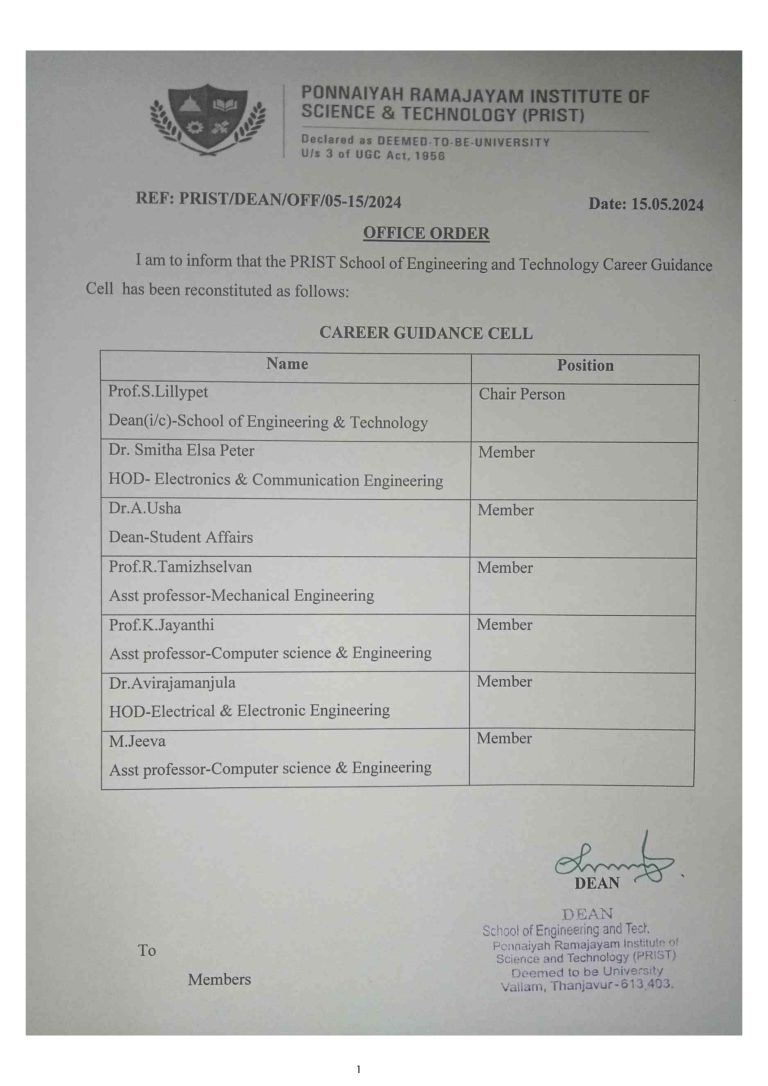
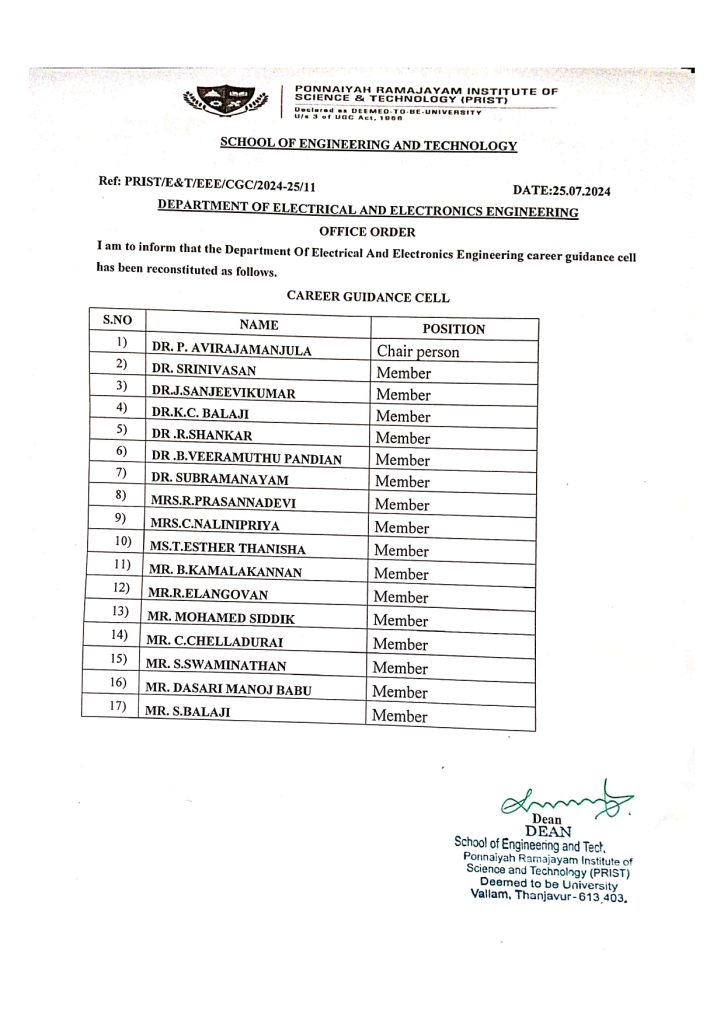
INDUSTRIAL VISIT:
- Department Organized Industrial Visit for students to Kudankulam Nuclear Power Plant (KKNPP), Kudankulam, Tirunelveli District, Tamilnadu on 05.03.24. Read More.
General Events:
- Poster Presentation on “BABYLOSS AWARENESS BEFORE AND AFTER PREGNANCY “Conducted on 15.12. 2023. Read more.
- Local visit to M/s Nroot Consultancy, Thanjavur was conducted on 11.10.2023. Read more.
Seminars:
- H1N1–Swine Flu (Conducted By AMBER /EEE Association Presented by Dr.P. Avirajamanjula, (Dec 5, 2022).
- Seminar on Bluetooth Technology (Conducted By AMBER /EEE) Association Presented by Mr.D.Hariharan, (Nov 22, 2022).
- Technical Seminar- Hydrogen Powered Fuel Cell Vehicle for Emission Free Future India Presented by Mr.R. Elangovan, (June 5, 2022).
- Technical Seminar- Optical Fibre Communication Presented by M.R. Geetha, (Jan 24, 2020).
Workshops:
- National Workshop- Internet of Things for Smart Grid Participated by Mr.D.Hariharan, (Mar 8, 2023).
- Technical Workshop- Solar Forecasting and Integrated Energy Storage Participated by Mrs. N. Mangaleswari, (Feb 4, 2022).
Conferences:
- Signal Processing Advances in Wireless Communication, Mr. B.Kamalakannan, (Apr 12, 2023)
- Sensor Based Smart Segregation Dustbin, Mrs. N. Mangaleshwari, (Jan 25, 2023)
- Advanced Water Treatment by Nano Particles, Ms.R.Nagalakshmi, (Sep 15, 2022)
- Renewable Energy, M.R.Geetha, (Jul 9, 2022)
- IOT Based Transformer, Health Monitoring System, Dr.P.Avirajamanjula, (Apr 13, 2022)
- Energy Systems with Performance Analysis, Dr.B. Kunjithapatham, (Feb 9, 2020)
- The Maximum Power Generation Techniques and Algorithm for Renewable,Ms.A.Sowmiya, (Jan 4, 2020)
- Performance Analysis of High Power Generation Techniques, Mr.R.Elangovan, (Dec 8, 2019)
- Algorithm of Solar PV also with the Ehs, Ms.G.Krithiga, (Nov 18,2019)
- GSM Based Transformer Condition Monitoring System, Mr.D.Hariharan, (Aug 5, 2019)
Past Events:
- National Conference on Recent Trends in Engineering Technologies(NCERT 2023).
- A One Day Seminar on Machine Learning Python -2023 Organized By IEEE at P.R. Engineering College
- A One Day International Conference on Artificial Intelligence and Autonomous Systems- 2023 at PRIST University
Contact Details:
Head, Department Of EEE
PONNAIYAH RAMAJAYAM INSTITUTE OF SCIENCE & TECHNOLOGY (PRIST), Vallam, Thanjavur -613403.
Email:
hodeee@prist.ac.in
Phone:
04362265021

